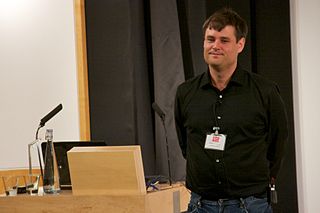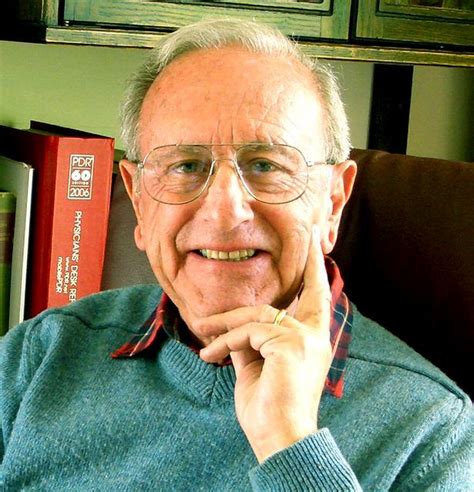A Quote by Herbert A. Simon
My research career has been devoted to understanding human decision-making and problem-solving processes. The pursuit of this goal has led me into the fields of political science, economics, cognitive psychology, computer science and philosophy of science, among others.
Quote Topics
Among
Been
Career
Cognitive
Computer
Computer Science
Decision
Decision-Making
Devoted
Economics
Fields
Goal
Human
Led
Making
Me
Others
Philosophy
Philosophy Of Science
Political
Political Science
Problem
Problem-Solving
Processes
Psychology
Pursuit
Research
Science
Science And Philosophy
Solving
Understanding
Related Quotes
This example illustrates the differences in the effects which may be produced by research in pure or applied science. A research on the lines of applied science would doubtless have led to improvement and development of the older methods - the research in pure science has given us an entirely new and much more powerful method. In fact, research in applied science leads to reforms, research in pure science leads to revolutions, and revolutions, whether political or industrial, are exceedingly profitable things if you are on the winning side.
We have to overthrow the idea that it's a diversion from 'real' work when scientists conduct high-quality research in the open. Publicly funded science should be open science. Improving the way that science is done means speeding us along in curing cancer, solving the problem of climate change and launching humanity permanently into space.
My high school, the Illinois Mathematics and Science Academy, showed me that anything is possible and that you're never too young to think big. At 15, I worked as a computer programmer at the Fermi National Accelerator Laboratory, or Fermilab. After graduating, I attended Stanford for a degree in economics and computer science.
We are living in a society that is totally dependent on science and high technology, and yet most of us are effectively alienated and excluded from its workings, from the values of science, the methods of science, and the language of science. A good place to start would be for as many of us as possible to begin to understand the decision-making and the basis for those decisions, and to act independently and not be manipulated into thinking one thing or another, but to learn how to think. That's what science does.
The first proponent of cortical memory networks on a major scale was neither a neuroscientist nor a computer scientist but .. a Viennes economist: Friedrich von Hayek (1899-1992). A man of exceptionally broad knowledge and profound insight into the operation of complex systems, Hayek applied such insight with remarkable success to economics (Nobel Prize, 1974), sociology, political science, jurisprudence, evolutionary theory, psychology, and brain science (Hayek, 1952).
The history of science, like the history of all human ideas, is a history of irresponsible dreams, of obstinacy, and of error. But science is one of the very few human activities-perhaps the only one-in which errors are systematically criticized and fairly often, in time, corrected. This is why we can say that, in science, we often learn from our mistakes, and why we can speak clearly and sensibly about making progress there. In most other fields of human endeavour there is change, but rarely progress ... And in most fields we do not even know how to evaluate change.




































